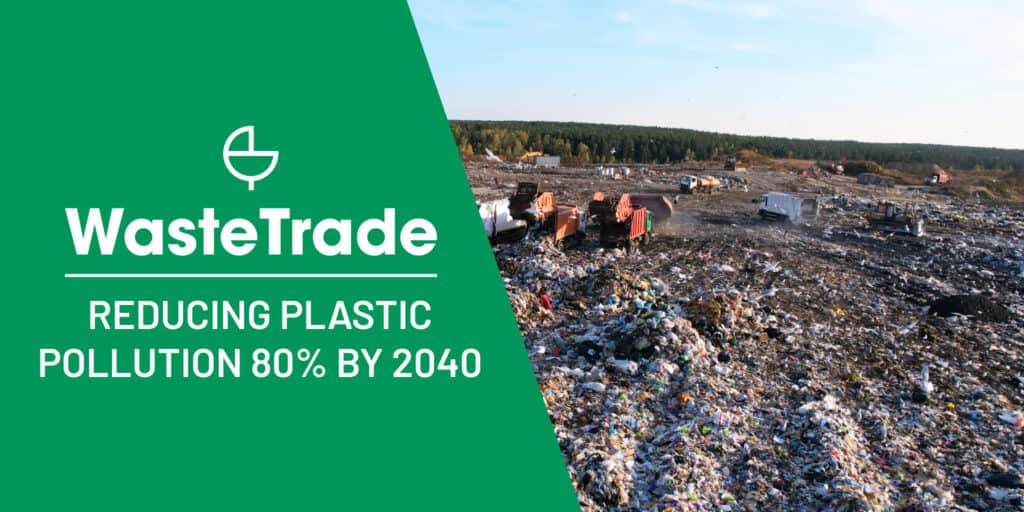May 24, 2023
Roadmap to a Greener Future: The UN Strategy for Reducing Plastic Pollution 80% by 2040

UN Plan to Tackle Plastic Waste
The United Nations Environment Programme (UNEP), the environmental arm of the United Nations headquartered in Kenya, published a detailed plan on Monday aiming to diminish plastic waste by a staggering 80% by the year 2040. According to the report, the proposed reduction in plastic pollution can be achieved with current technologies and by instituting significant policy transformations.
The report’s publication arrived two weeks before the global community is due to gather in Paris for a second series of negotiations focused on crafting an international treaty with a singular goal: the eradication of plastic pollution. This analysis provided by UNEP outlines policy alternatives to confront the escalating plastic waste crisis, laying the groundwork for these imminent negotiations.
The Key Pillars: Reuse, Recycle, and Repackage
The UNEP report pinpoints three primary market shifts necessary to establish a “circular” economy—a system that extends the lifecycle of produced goods, maintaining them in circulation for as long as feasibly possible. These identified shifts encompass the reuse and recycling of materials, and a fundamental reorientation of packaging strategies, moving away from plastics towards alternative materials.
Inger Andersen, the Executive Director of UNEP, stated that following this outlined pathway could yield substantial economic, environmental, and social benefits. The implementation of these guidelines within the upcoming negotiations on the plastic pollution treaty could contribute significantly towards these positive outcomes.
The forthcoming treaty negotiations, known as INC2, are scheduled from May 29 to June 2. These discussions are expected to provide crucial input for the initial treaty draft, which is slated for completion before the third round of negotiations in Kenya this coming November.
The UNEP report suggests that by 2040, promoting reuse initiatives—such as refillable bottle systems or deposit return schemes—could potentially reduce plastic waste by 30%. The report also proposes that increased recycling could result in an additional reduction of 20% if it evolves into a more stable and profitable enterprise, especially if current fossil fuel subsidies are eradicated. Furthermore, the replacement of items like plastic wraps and sachets with compostable materials could provide an additional 17% reduction.
Navigating Diverse Global Strategies
Various countries employ diverse strategies in their approach to mitigate plastic waste. Major plastic producing countries, including the United States and Saudi Arabia, favour a system of national strategies. Alternatively, nations forming a “High Ambition Coalition”—consisting of Norway, Rwanda, New Zealand, the European Union, and others—have advocated for a top-down approach. They insist on global targets to curtail the production of new plastic and to eliminate fossil fuel subsidies, amongst other measures.
The Challenge of Unrecyclable Plastics
On Tuesday, some environmental campaigners criticised UNEP for endorsing the practice of incinerating plastic waste in cement kilns or incinerators, specifically for waste that cannot be recycled. A 2021 investigation by Reuters revealed that several of the world’s most prominent consumer brands have funded projects directing their plastic waste to incineration.
Addressing this issue, UNEP acknowledged the existence of a narrow timeline to achieve their 2040 objectives. As a result, they suggested that some “sub-optimal solutions” might have to be employed to manage the unrecyclable waste. However, the organisation also acknowledged that further research is needed to evaluate the potential impacts of these solutions, specifically the increase in greenhouse gas emissions or air toxics.
In response to these concerns, Dr Neil Tangri, Policy Director at the Global Alliance for Incinerator Alternatives (GAIA), stated, “Not only does this pose a grave climate and public health threat, it also undermines the primary goal of the global plastic treaty—putting a cap on plastic production.” These comments highlight the complexity of finding a solution to the global plastic waste issue, with various interests and perspectives needing to be carefully balanced to achieve a sustainable outcome.
WasteTrade supports the development of such a treaty that takes the fight to plastic pollution. However, we want to ensure that it is drafted and executed properly and is not rushed to the point that it ultimately fails to achieve its aims. Everything possible should be done to keep plastic out of landfill and incineration; this can include investment in recycling infrastructure, international cooperation to make ethical recycling more easily accessible, legislation that mandates the use of recycled and recyclable materials in packaging and consumer products, and more.
It is great news that the plastic pollution crisis is being made a higher priority by world governments, but the industries, such as the recycling sector, that will be achieving what is set out in this treaty should be involved in the process of creating it. The practical knowledge and expertise of how to reduce plastic pollution is not held by government officials and policy makers, but rather by those in the sustainability sectors that work to combat plastic waste every day. Including these individuals and organisations in the drafting of this treaty is paramount to its success.





